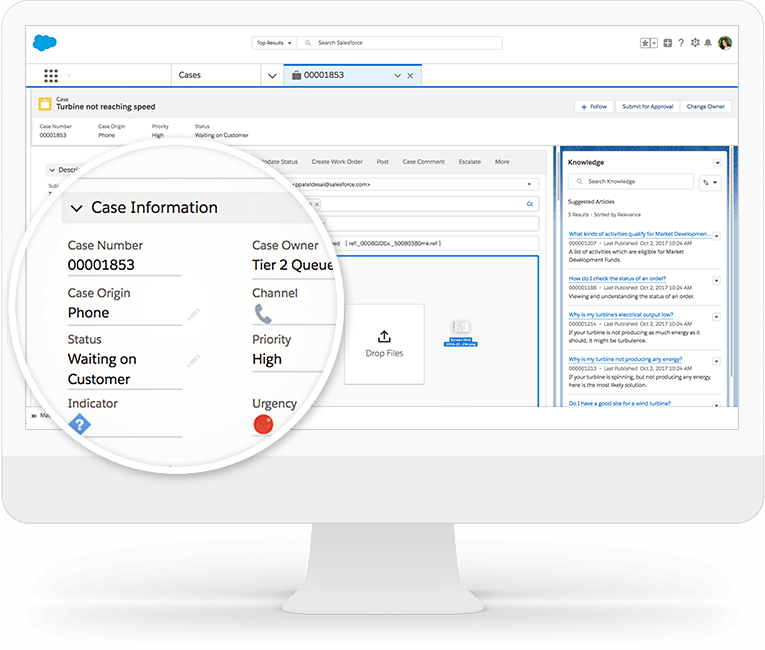
What is Salesforce Service Cloud?
Salesforce Service Cloud is a customer relationship management (CRM) platform that offers a range of tools for businesses to manage their customer support operations. It is designed to help organisations deliver faster, smarter, and more personalised service to their customers, resulting in better customer satisfaction, loyalty, and retention.
Benefits of Salesforce Service Cloud
Improved Customer Service
Salesforce Service Cloud provides a unified platform for businesses to manage their customer service operations, including customer inquiries, complaints, and requests. It offers a 360-degree view of the customer, enabling businesses to provide more personalised and efficient service. Agents can quickly access customer information and history, which helps them provide more accurate and timely responses to customer inquiries.
Increased Productivity
Salesforce Service Cloud automates many of the manual tasks involved in customer service, such as routing inquiries to the right agent, escalating issues, and tracking customer interactions. This reduces the workload on agents and increases their productivity, allowing them to handle more inquiries in less time. The platform also provides real-time reporting and analytics, enabling businesses to identify areas of inefficiency and improve their service delivery.
Greater Customer Satisfaction
By providing faster, more personalised service, businesses using Salesforce Service Cloud can increase customer satisfaction and loyalty. The platform enables businesses to respond to customer inquiries across multiple channels, such as email, phone, chat, and social media, making it easier for customers to reach out and get the support they need. The platform also allows businesses to track customer feedback and respond to complaints in a timely and effective manner.
Improved Collaboration
Salesforce Service Cloud enables businesses to collaborate more effectively with their team members and other departments. The platform provides a centralised location for all customer service interactions, enabling agents to share information, collaborate on cases, and escalate issues as needed. This leads to faster resolution of customer issues and a more streamlined service delivery process.
Return on Investment
The ROI of Salesforce Service Cloud can be measured in several ways, including:
Increased Revenue
By improving customer satisfaction and loyalty, businesses using Salesforce Service Cloud can increase revenue. Satisfied customers are more likely to make repeat purchases and recommend your business to others, resulting in increased sales and revenue.
Reduced Costs
Salesforce Service Cloud can help businesses reduce costs associated with customer service. The platform automates many of the manual tasks involved in customer service, reducing the workload on agents and increasing their productivity. This can result in reduced labor costs and improved efficiency.
Improved Operational Efficiency
By providing real-time reporting and analytics, Salesforce Service Cloud can help businesses identify areas of inefficiency and improve their service delivery. This can result in improved operational efficiency, reduced costs, and increased revenue.
Better Customer Retention
Salesforce Service Cloud helps businesses improve customer retention by providing faster, more personalised service. Satisfied customers are more likely to stay loyal to your business, resulting in improved customer retention and increased revenue.
Salesforce Service Cloud offers a range of benefits to businesses, including improved customer service, increased productivity, greater customer satisfaction, and improved collaboration. The ROI of Salesforce Service Cloud can be measured in several ways, including increased revenue, reduced costs, improved operational efficiency, and better customer retention. By investing in Salesforce Service Cloud, businesses can improve their customer service operations and achieve a significant return on their investment.
